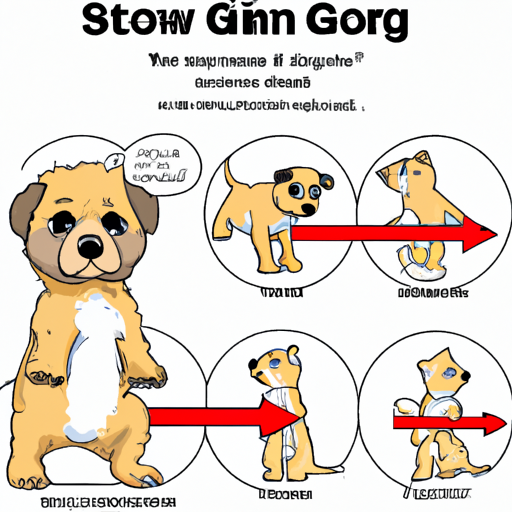Understanding Your Pup’s Growth Stages
As a caregiver, it’s essential to know that puppies don’t just stop growing suddenly. Instead, your little furball will go through various stages of growth before reaching their full size. Just like humans, the rate at which dogs grow and when they stop growing is largely determined by their breed and genetics.
The Growth Timeline of Different Breeds
Different dog breeds grow at different rates and reach adulthood at different ages. Here’s a general timeline:
- Small Breeds – These breeds typically stop growing between 6 to 8 months of age.
- Medium Breeds – Medium-sized dogs usually stop growing around the 12 months mark.
- Large Breeds – Larger breeds can grow until they are 18 months old, sometimes even up to 2 years.
| Breed Size | Stop Growing Age |
|---|---|
| Small | 6-8 Months |
| Medium | 12 Months |
| Large | 18-24 Months |
Factors That Can Influence Your Dog’s Growth
A dog’s growth isn’t just about genetics; several other factors can influence it. Let’s take a look at a few:
- Diet – Proper nutrition plays a crucial role in your dog’s growth. A balanced diet ensures your pup gets all the vitamins and nutrients they need to grow healthy and strong.
- Health – Certain health issues can slow down or speed up your pup’s growth. Regular vet check-ups are recommended to catch any potential problems early.
- Exercise – Regular exercise is essential for healthy growth. It keeps your furry friend’s muscles strong and helps prevent obesity, which can hinder growth.
Knowing When Your Dog Has Stopped Growing
It might be difficult to know exactly when your dog has stopped growing. However, there are signs you can look for. The most noticeable change will be in their physical size. Once they stop growing, their size will remain consistent. Another sign is when they lose their puppy fur and get their adult coat.
The Importance of Understanding Your Dog’s Growth
Understanding your dog’s growth is more than just satisfying your curiosity. It helps you provide the right care at the right time. For example, knowing when your pup is likely to stop growing can help you transition them from puppy food to adult food at the right time.
Frequently Asked Questions
Q: Can I determine my puppy’s adult size?
A: To some extent, yes. The size of a puppy’s paws can give you a clue about their adult size. Larger paws often mean a larger adult dog.
Q: Does neutering or spaying affect a dog’s growth?
A: Some studies suggest that neutering or spaying can cause a dog to grow slightly taller than they would if they weren’t neutered/spayed.
Q: What if my dog isn’t growing?
A: If you’re concerned about your pup’s growth, it’s best to consult with a vet. They can check if there are any underlying health issues.



